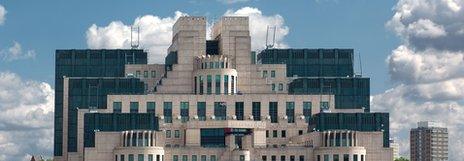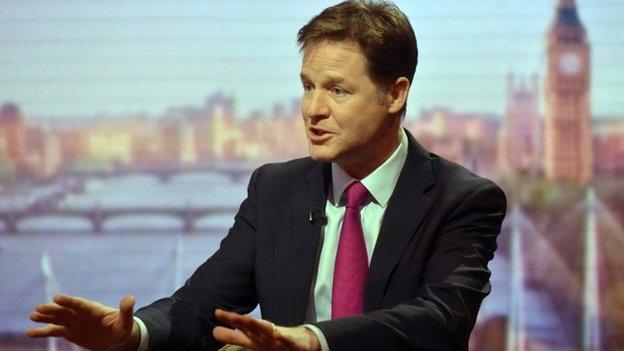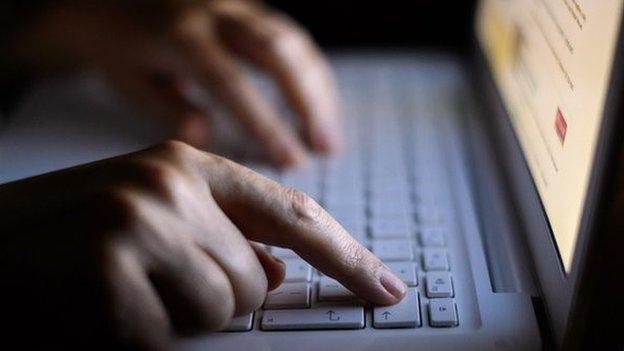Ex-MI6 chief: Government and tech firms must agree spy pact
- Published

Sir John Sawers said a terrorist attack in the UK was "highly likely"
British intelligence agencies and technology companies need to agree on data-sharing to stop terrorism, the former head of MI6 has said.
Speaking publically for the first time since stepping down, Sir John Sawers said there could not be online "no-go areas" the government could not access.
The ex-spy chief said trust between governments and internet companies had been shattered and needed rebuilding.
Another UK terrorist attack "would get through" at some point, he said.
Speaking at the launch of a study by public affairs firm Edelman on attitudes towards bodies like the security services, the ex-chief of the Secret Intelligence Service said it was not possible to stop terrorist attacks like those in Paris without a data-sharing agreement to allow the security agencies to monitor people's activity online.
"Of course there is a dilemma here because the general public and politicians and the technology companies, to some extent, they want us to be able to monitor the activities of terrorists and other evil doers but they do not want their own activities to be open to any such monitoring," he said.
"If you allow areas which are completely impenetrable, then, okay, you might feel comfortable that your communications are private and no one else can see them, but so are those who are trying to do you down and undermine your society."
'Shattered trust'
Sir John said a breakdown in trust between between internet companies and the government was the result of revelations by whistleblower Edward Snowden, the former US spy agency contractor who disclosed the extent of surveillance and electronic monitoring by US and British government agencies.
"Snowden threw a massive rock in the pool and the ripples haven't stopped yet," he said.
Sir John also warned a "hardened core" of fighters returning to Britain from Iraq and Syria posed a real threat.
"At some point these threats will get through and there will be another terrorist attack in this country," he said.

Analysis

By BBC Security Correspondent Frank Gardner
Sir John Sawers has spent most of the last five years hidden from the public.
As the recently retired Chief of the Secret Intelligence Service, more commonly known as MI6, he oversaw what he called 'a root and branch' programme of modernisation, moulding the spy agency to face 21st Century threats.
He has also had to deal with allegations that, in the years immediately following the 9/11 attacks, MI6 officers were complicit in the rendition and abuse of suspected terrorists.
He said these allegations needed to be taken seriously, and they are still under police investigation.
Referring to MI6's partner agency, the CIA, he said they had run into problems because they became involved in "lethal operations".
British intelligence agencies, he said, acted in support of the military but did not get involved in "kinetic operations" involving the use of lethal force.
The former spy chief has now left government service and is poised to begin a new career in the private sector.

Snoopers' charter
Prime Minister David Cameron has promised laws giving greater access to online communication if he wins the May general election.
Some opponents, including Deputy Prime Minister Nick Clegg, have objected to the so-called 'snoopers' charter', saying it goes too far.
But Sir John, who was formerly known in Whitehall as "C", backed the prime minister's stance.
He said online communication services like Facebook's WhatsApp and Apple's FaceTime could not be beyond the reach of monitoring agencies.
"I think one benefit of the last 18 months' debate is that people now understand that is simply not possible and there has to be some form of ability to cover communications that are made through modern technology," he said.
Sir John was Britain's ambassador to the United Nations before being named as the head of MI6 in 2009. He stepped down from the role in November.
He also spent three years as Tony Blair's foreign policy adviser.
- Published18 January 2015

- Published13 January 2015

- Published12 January 2015

- Published14 January 2015
